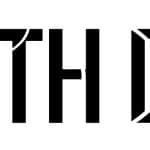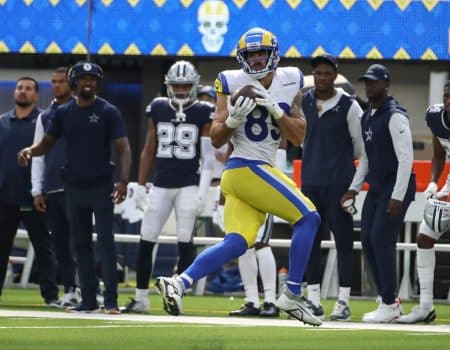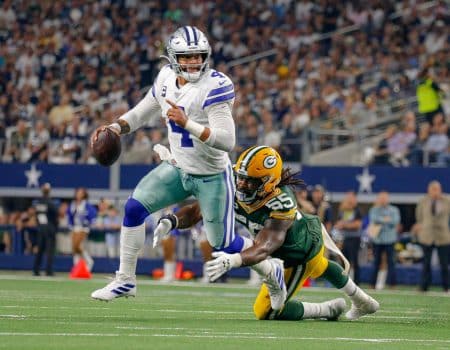New Orleans Saints running back Alvin Kamara was the story of the 2017 season, as the third-round rookie outperformed players picked rounds ahead of him – both in real life and in fantasy – en route to winning the 2017 NFL Offensive Rookie of the Year award. Kamara also became a darling in fantasy football circles, as he finished as the RB3 in PPR behind only Le’Veon Bell and Todd Gurley despite having a preseason ADP in the twelfth round. However, heading into the 2018 season, many fantasy football analysts are projecting a disappointing season for Kamara due to impending efficiency regression. Regression toward the mean is one of the most commonly viewed phenomena in fantasy football; that is, players with abnormally efficient or inefficient seasons are almost certain to finish closer to the mean the next season. Although Kamara’s efficiency will surely drop from its historic 2017 levels, the fantasy football community is overcompensating for said regression when projecting his 2018 production, as Kamara’s receiving ability and a projected increase in rushing volume will ensure that he remains an RB1 in 2018.
Kamara had just 120 carries in 2017, but there was a stark contrast in his carries per game averages before and after Adrian Peterson was traded to the Arizona Cardinals. In the first four games of the season (i.e. before Peterson was traded), Kamara was third in the pecking order for rushing attempts in New Orleans and saw an average of just 3.8 carries per game. In the final twelve games (excluding the game he missed almost all of due to a concussion), Kamara saw an average of 9.5 carries per game, a 152 carry pace over a full 16 game season. Assuming he sees similar volume next season to what he received in 2017 after Peterson was traded, his efficiency can come down significantly and he’ll still equal his total rushing output from 2017. Furthermore, Mark Ingram’s suspension means Kamara is the lone wolf in that backfield for the first four games of the season. While Sean Payton has a history of splitting up rushing attempts among multiple running backs, the only other running backs in New Orleans besides Ingram and Kamara are Trey Edmunds, Boston Scott, and Jonathan Williams. Edmunds has just nine carries on his career, Scott is a sixth-round rookie out of Louisiana Tech, and Williams has posted unremarkable efficiency on just 27 career carries and was cut by the Bills prior to the 2017 season despite Buffalo not having a backup running back. With no backs of significance behind Kamara, he will shoulder the load during Ingram’s suspension. However, the overcorrection to impending regression by the fantasy football community happened far before news of Ingram’s suspension broke; Kamara would have been in the neighborhood of ten carries per game even with Mark Ingram alongside him in the backfield (and he will be around the ten carries per game mark once Ingram returns).
Most of Kamara’s fantasy value though comes through the air rather than on the ground. Kamara finished third among all running backs in targets behind Christian McCaffrey and Le’Veon Bell, and he finished second in running back receptions behind only Bell. Kamara is a prolific pass-catcher and the Saints are the best fit possible for pass-catching running backs – in each of the last five seasons, the Saints have finished in the top five in percentage of targets thrown to running backs, including two first-place finishes in that category in 2016 and 2017. There is no reason to think that Kamara will catch fewer passes than last year, especially since Mark Ingram (71 targets in 2017) will be gone for the first four games of the season. New Orleans loves utilizing their running backs in the passing game, and pass-catching is Kamara’s best trait. It’s a match made in heaven.
The main argument against Kamara’s fantasy value for 2018 is efficiency regression, and it’s a valid concern. After all, it’s unrealistic to expect Kamara to finish with 6.1 yards per carry again. That mark placed him fourth among all running backs with at least 100 carries in the post-merger area. The three players in front of him averaged 6.4, 6.4, and 6.1 YPC. In their next qualifying season, those three players averaged 3.8, 5.3, and 4.3 YPC, respectively. While Kamara’s efficiency may decline, he should see more rushing volume than last year, which will minimize the impact regression has on his overall rushing output. If Kamara sees just 10 carries per game next year – he averaged 9.5 per game after Adrian Peterson was traded last year – he’ll only need to average 4.6 yards per carry to exceed his rushing yardage total from 2017. Furthermore, while 6.1 YPC and 7.7 yards per touch is unsustainable for any player, Alvin Kamara isn’t just your average NFL running back. Kamara finished in the top fifteen in both evaded tackles and juke rate per Player Profiler, and, while defensive coordinators will now have a whole season of film on him, it’s tough to stop what you can’t tackle.
While Kamara’s yardage output may not drop from 2017 to 2018, his touchdown total probably will. Kamara scored eight touchdowns via the ground with five more through the air for a total of thirteen touchdowns in 2017, even though an average running back would have scored just 5.4 times according to Pro Football Focus. While Kamara isn’t an average running back, he will likely score fewer touchdowns next season, as touchdowns are fluky and Kamara scored at a historic rate despite not getting goal line carries (Mark Ingram had 13 carries inside the five last year, Kamara 4). Because of this, I expect Kamara to finish as a middle-of-the-pack RB1 rather than an elite one like last year.
Mark Ingram’s suspension will only boost Alvin Kamara’s ADP further into the first round of fantasy football drafts, but there remains a vocal contingent of people who want nothing to do with him because of near-certain efficiency regression in 2018. Yes, Kamara’s efficiency will not repeat itself next season, but it doesn’t need to for Kamara to provide first-round return on investment. Especially with Ingram’s suspension, Kamara is in line to see a notable increase in rushing attempts in 2018, and the receiving volume will be there given his talent as a pass-catcher and the Saints running back-friendly passing scheme. The fantasy football community has overcorrected itself regarding Kamara’s fantasy value for 2018 – there is no way he replicates his 2017 efficiency, but he’ll make up for efficiency regression through increased rushing volume and a safe receiving floor.






No Comment! Be the first one.